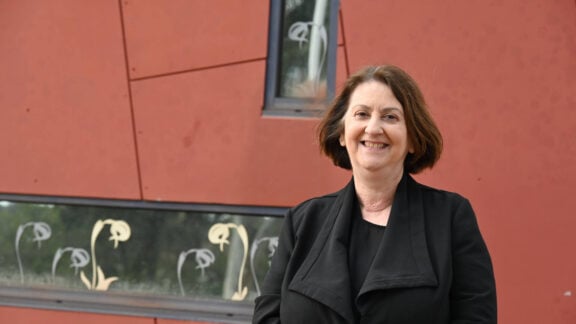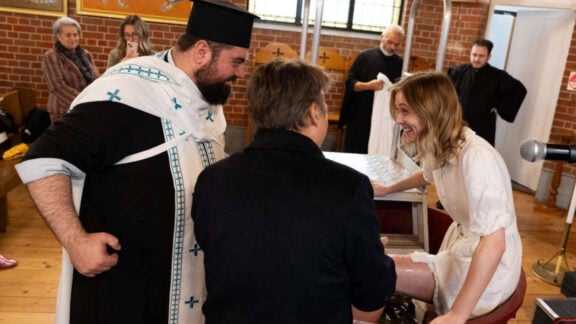“If you deconstruct Greece, you will, in the end, see an olive tree, a grapevine, and a boat remain. That is, with as much, you reconstruct her.”
Odysseus Elytis, Greek poet and winner of the Nobel Prize in Literature 1979
When I deconstruct Greece, I feel nostalgia.
When I reconstruct Greece, I see the countryside and everyday village life between Odysseus Elytis’ olive tree, grapevine and boat.
I hear the travelling grocer and church bells. I recall Greek generosity and “φιλοτιμο”. I see empty streets and packed airports.
These make me remember a special holiday, two years ago, when we went for the first time, since migrating to Australia in 1971, as a family to my ancestral village, Nea Kerdillia, in Greece’s northern prefecture of Serres.
“ΠΑΤΑΤΕΣ, ΚΡΕΜΜΥΔΙΑ, ΠΕΠOΝΙΑ!”
The first thing I hear in the early morning as the sun bakes the parched Greek earth again, is the shrill sound of the male cicadas. It is piercing through my head.
The noise is higher-pitched than yesterday when it was 39 degrees. It’s going to be another stinker, I know it. I wonder if today is the day I will melt.
It is too early to put on the air-conditioning, so I switch on the hot water system for a few minutes instead. I like the shower water lukewarm. I’ve got to get out early if I want to finish my chores before the heat. I’ve got to leave soon if I don’t want the villagers’ rejects and the baker’s scraps.
Nobody wears a hat here. The baker’s wife stares at my big red straw hat. She asks if it gets hot in Melbourne.
“Not like this,” I say.
“Nα προσέχεις, τότε,” she warns me about the Hellenic sun.
READ MORE: Flessiada in Messinia, a most precious memory of a holiday in Greece
“Καίει πολύ εδώ ο ήλιος.”
God, how this sun burns.
“Πατάτες, κρεμμύδια, πεπόνια. Ελάτε να ‘γοράσετε.”
It’s the sound of today’s lunch and dinner blaring from a tired megaphone: It’s the fruit that will cool my palate.
I rush home, but my mother says to relax.
The mobile green grocer is on the other side of the village, she says, and it will be a while before he comes to our place. I should go inside and wait for him to tell me when he’s ready.
After 45 minutes the man in the van stops outside the fence and plays loud Greek music. It’s my cue to go outside and shop.
DING, DONG,
DING, DONG, DING, DONG.
The first church bell on Sunday rings at 7.30am. I turn over in my bed.
The second church bell rings at 8.15am. I turn to the other side.
The third church bell rings at 9am. There is no getting out of this one.
Miss two Sundays in a row and I might get an “απουσία” and non-attendance recorded against me.
It’s better to go. Besides she’ll be waiting for me, my mother. She’ll have put her purse on the seat next to her to reserve my spot. It’s right next to where her cousin has been sitting for years. Everyone knows where my mother’s cousin sits and my mother’s cousin knows where everyone else in the village sits.
After the service, my female cousins and their female friends shout us coffee and a “μπουγάτσα” of cream-filled pastry at the nearby café.
We then all go home for the afternoon.
Dong. Dong.
Dong.
The church bell rings again after siesta, at 6pm.
It’s that old woman down the road. Her children in Greece were expecting her death a few months ago in spring. Her children in Germany are grateful she lasted longer: They arrive just in time to see her one last time.
READ MORE: There are ways for Greek Australians to “travel” to Greece
“ΘΑ ΣΑΣ ΠΑΩ ΕΓΩ”
The café owner said he would look after my father while we went to the bank, but our “μπαμπά” must be worried by now.
My sister and I have been walking this main city road, in Serres, for an hour and we still can’t find him. Now it’s 1pm and everything is closing.
The shopkeepers are pulling down their security shutters; they are dragging across their steel concertina security doors. All the pedestrians have gone home for siesta and the taxis don’t stop when we hail them. There are only three cars parked on the road.
“Δεν είσαστε από εδώ,’ the man in the red car declares.
I tell him my sister and I are Greek migrants living in Melbourne, Australia, and we have to pick up our father from a café . He tells me he has a good friend in Melbourne, a big businessman who comes to Greece every summer. He says he knows the café and offers to drive us.
“Θα σας πάω εγώ,” he says.
He drops us off and I offer to pay him. He is offended.
I offer him a $20 Australian note as “γούρι”.
It works like a charm and he accepts the money.
“Καλή συνέχεια, κορίτσια,” he says.
We pick up my father, go to the bus stop and continue with our day.
READ MORE: Marrickville, returning to the ‘Little Greece’ of our memories
EMPTY STREETS
I can set my watch by it.
The streets start emptying from midday: Even the stray dogs find some hidden shade to collapse in and are out of sight.
There the Greeks are, sitting down to lunch at 1.30pm as they watch ERT’s midday television news bulletin. There’s my cousin washing the dishes at 2.30pm. There they all are by 3, having their siesta.
It’s like magic how everyone and everything disappears in the middle of the day.
Only summer heat, and the council water meter readers, have the power to empty the streets of a whole civilisation and lock the people in their homes.
AIRPORTS
I want to hire a maxi taxi, but my father’s nephew, Yiannaki, won’t let me.
He has greeted and farewelled me from Thessaloniki airport since my first trip to Greece, in 1989.
Back then, Yiannaki would pick me up in a red ute with a four-door passenger Toyota.
This time round, he would need a van to take us all to the airport. Luckily, the Canadian archaeology students finished their dig in the ancient colony, Argilos, between my village and Yiannaki’s tourist beach-side village of Nea Vrasna, and the van is free.
My mother, father, sister and I, have 30kg suitcases and 5kg cabin bags each.
That’s almost 150kg. Then there’s us, too.
“Πω, πω, πω,” Yiannaki says, looking at all our luggage.
He puts most of it in the back, and seats us according to our weight. The heaviest sits in the front of the van, the second and third heaviest in the middle and the thinnest at the back.
Off we go through the back roads to Thessaloniki airport avoiding the tolls. We talk about many things on the way. We don’t talk about the fact we are leaving.
We arrive at the airport and put our bags on the trolleys and check-in. Yiannaki stays with us until the final moment of my holiday in Greece.
“Final boarding call for QATAR Airways flight to Melbourne”.
Yiannaki kisses me goodbye, first on my right cheek and then on the left. I tell him to kiss my 86-year-old father one last time.
But, Yiannaki does what he always does and smiles: He says what he always says, and tells me to call him from Melbourne and that he’ll see me next year.
“Να μου πάρετε τηλέφωνο όταν φτάσετε στη Μελβούρνη,” Yiannaki says.
“Καλό ταξίδι. Και του χρόνου πάλι..
“Εδώ, στο αεροδρόμιο, θα σας περιμένω.”
Neos Kosmos invites you on a mental journey to the motherland, without restrictions, through your memories of past summers.
Send your photos and stories of some of your favourite, unforgettable summer moments in Greece or Cyprus to editor@neoskosmos.com.au









